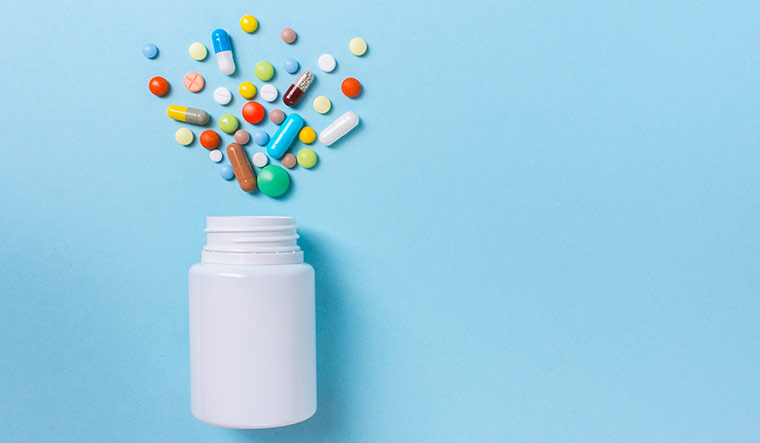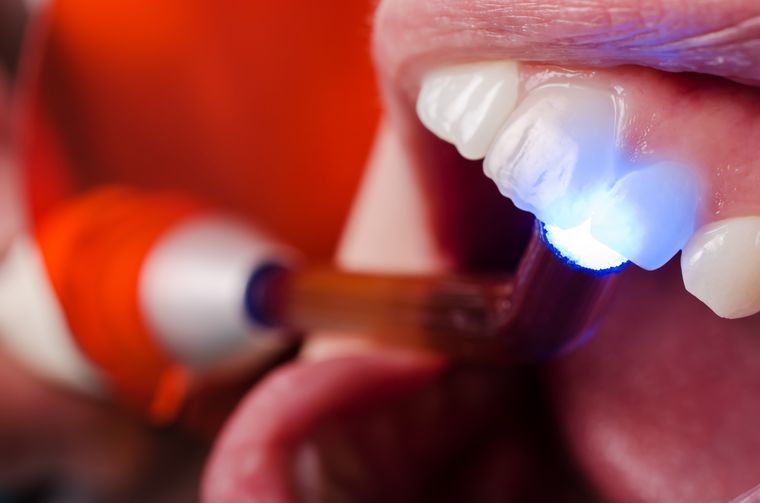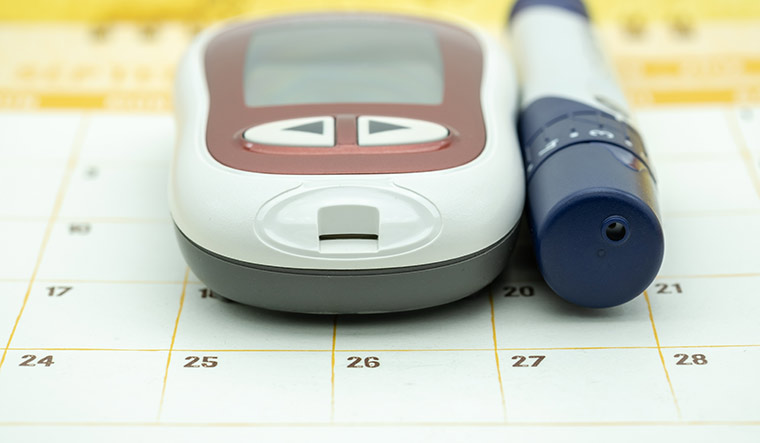TWIN BIRTH RATES are soaring worldwide, according to a global overview published in the journal Human Reproduction.
The researchers analysed data on twin births from 165 countries between 2010 and 2015. They also looked at data from 112 countries between 1980 and 1985.
Since the 1980s, twin births have increased by more than 30 per cent, from 9 to 12 per 1,000 deliveries. Globally, about 1.6 million twins are born each year and one in every 42 babies born is a twin.
A big reason for this rise is the increase in medically assisted reproduction, including in vitro fertilisation, ovarian stimulation and artificial insemination.
Another reason is that women are delaying childbearing. The possibility of having twins increases with the mother’s age. Increased use of contraception and lower fertility overall could also play a role.
The absolute number of twin deliveries has increased everywhere except in South America. There was a 32 per cent increase in twin birthrate in Asia, and 71 per cent increase in North America. In both periods, Africa had the highest twin birth rates. Nearly 80 per cent of all twin deliveries in the world now take place in Asia and Africa.
Short-course antibiotics work well for common infections
ACCORDING TO NEW recommendations from the American College of Physicians, shorter courses of antibiotics work as effectively as the traditional 10 days or more courses, for some of the most common bacterial infections.
The recommendation addressed conditions such as bronchitis, pneumonia, skin infections (cellulitis) and urinary tract infection (UTI).
Antibiotic treatment duration should be limited to five days when managing patients with chronic obstructive pulmonary disease (COPD) and acute uncomplicated bronchitis who have clinical signs of a bacterial infection.
Patients with uncomplicated pneumonia should be treated with antibiotics for a minimum of five days. Longer treatment should be based on clinical symptoms.
UTIs can be treated with short-course antibiotics: nitrofurantoin for five days, or trimethoprim-sulfamethoxazole for three days, or fosfomycin as a single dose.
Patients with uncomplicated cellulitis can be treated with five to six days of an antibiotic that covers streptococci, a common cause of these infections.
Even though the guidelines focused on four common conditions, shorter courses could also work for other less serious infections.
But people with diabetes or compromised immune systems may still need longer courses.
Covid-vaccine safe for pregnant women
ACCORDING TO A US study published in the American Journal of Obstetrics and Gynecology, pregnant women who were vaccinated for Covid-19 had a strong immune response after vaccination and they transferred protective antibodies to the baby as well.
The researchers analysed blood samples of 27 pregnant women—who had received either the Pfizer or Moderna vaccine in their third trimester—and the umbilical cord blood of their newborns. The women had a robust immune response after vaccination, suggesting that the vaccines will protect them from Covid-19. The study also found that a longer period between vaccination and delivery was associated with a greater transfer of Covid-19 antibodies to the baby.
Only three babies in the study did not have antibodies at birth. Their mothers received their first vaccine less than three weeks before giving birth.
Survivors’ struggle
ABOUT A THIRD of Covid-19 survivors go on to develop a neurological or psychiatric diagnosis within six months of infection with the SARS-CoV-2 virus. The risk was greatest for those who were hospitalised and critically ill.
For the study published in The Lancet Psychiatry, researchers from the University of Oxford analysed electronic health records of 2,36,379 Covid-19 patients. They looked at 14 neurological and mental health disorders.
Overall, 34 per cent of patients were diagnosed with a neurological or mental health disorder following Covid-19 infection. For 13 per cent of the patients, it was their first neurological or psychiatric diagnosis.
The most commonly diagnosed disorders were anxiety (17 per cent), mood disorders (14 per cent), substance misuse disorders (7 per cent) and insomnia (5 per cent).
The risk of neurological disorders was lower—0.6 per cent for brain haemorrhage, 2.1 per cent for ischaemic stroke, and 0.7 per cent for dementia.
Exercise for improved heart health
AS MEN GROW OLDER, their testosterone levels slowly start to decline. And, often they turn to testosterone supplements.
According to an Australian study published in the journal Hypertension, while testosterone supplements can boost levels of the male sex hormone, these supplements do not improve cardiovascular health. Instead, exercise is the best way to boost arterial function and improve cardiovascular health, and prevent heart attack and stroke.
To analyse the impact of testosterone therapy and exercise on the ageing heart, the researchers recruited 78 men, aged 50 to 70 without a history of heart disease.
None of the men was on testosterone therapy and their testosterone levels ranged from low to normal.
After an initial analysis of their arterial function, the men were randomly assigned to one of four groups: aerobic and strength training exercise two to three times per week plus testosterone therapy; testosterone therapy without exercise; placebo supplements without exercise; and placebo supplements with exercise.
Testosterone levels rose in 62 per cent of men who took the supplements. But, testosterone supplements without exercise did not improve arterial function at all.
On the other hand, exercise alone boosted arterial function as well as men's natural testosterone levels.
Arterial function improved by 28 per cent among those who exercised without taking testosterone therapy compared to 19 per cent among those who exercised and took the supplements.
Did You Know?
Fast eaters tend to eat more and are more likely to gain weight and become obese.
Clinical Obesity
Dental cavities linked to stroke risk
ACCORDING TO A US study presented at the American Stroke Association's virtual International Stroke Conference, dental cavities could significantly increase the risk of stroke caused by bleeding in the brain, which can be deadly.
For the study, the researchers followed 6,506 people without stroke for 30 years. They focused on the link between cavities and intracerebral stroke, which occurs when a blood vessel in the brain bursts and causes bleeding inside the brain.
Among them, 1,227 (19 per cent) participants developed dental cavities.
For those who developed cavities, the risk of stroke was only slightly higher in the first 15 years. But their risk increased significantly in the next 15 years. Those with cavities had a 4.5 times higher risk of a stroke from brain bleed than those without cavities, in the second half of the study period, even after accounting for age, gender, race and high blood pressure.
New hope for women in early menopause
AN EXPERIMENTAL TREATMENT may help restore fertility in women who go through early menopause.
A woman’s ability to become pregnant typically ends with menopause. But according to a study published in the journal Menopause, administering platelet-rich plasma and gonadotropins near the ovarian follicles may restore ovarian function.
An estimated 12 per cent of women experience early menopause, when ovarian function ceases at or before age 45. As more women are delaying motherhood to pursue their careers, their hope of conceiving ends with early menopause.
This pilot study included 12 early menopausal women whose ovaries were injected with platelet-rich plasma and gonadotropins. Following treatment, 11 women started to menstruate again, and one became pregnant.
Pen and paper, or tablet?
FOR LEARNING AND MEMORISATION, paper and pen are better than tablets and other digital devices, according to a Japanese study published in the Frontiers in Behavioral Neuroscience.
Taking notes on paper is associated with more brain activity, and can help us remember information better than when taking notes on a tablet or smartphone. Those who take notes on paper are also 25 per cent faster than those who use digital devices.
The study was based on 48 volunteers aged 18 to 29 years who were divided into three groups based on memory skills, preference for digital or analog methods, gender, age and other factors.
The participants read a fictional conversation between characters discussing their future, including 14 different class times, assignment due dates and personal appointments.
The volunteers then recorded this schedule using either a notebook and pen, a digital tablet with a stylus, or a smartphone with touch-screen keyboard.
After an hour, the participants answered questions about the schedule. While answering the questions, the researchers measured the neuronal activity in specific brain areas based on increased blood flow using an fMRI scanner.
Participants who used pen and paper completed the task in about 11 minutes compared to 14 minutes for the tablet users and 16 minutes for the smartphone users. They also scored better than the digital device users on simple test questions.
Furthermore, volunteers who used paper had significantly more brain activity in areas associated with language, and imaginary visualisation, as well as in the hippocampus, an area associated with memory and navigation.
The activation of the hippocampus suggests that analog methods contain richer spatial details that can be recalled and navigated in the mind’s eye, said the researchers.
Did You Know?
People who work more than 55 hours a week after a heart attack are twice as likely to suffer a second heart attack compared with those who work 35 to 40 hours a week.
Journal of the American College of Cardiology
Once-a-week insulin shots are effective
AN EXPERIMENTAL once-a-week insulin injection has shown to be safe and effective at controlling blood sugar in patients with type 2 diabetes. Phase 2 clinical trials of the new drug called Basal Insulin Fc (BIF) was just as effective as the standard once-a-day Basal Insulin degludec.
The 32-week trial included 399 patients who had type 2 diabetes. The patients were randomly assigned to once-a-week injections of BIF at one of two different doses or the standard once-daily injections of insulin degludec.
Long-term blood glucose control as measured by haemoglobin A1c was similar for patients taking the weekly shots and for those taking the daily shots. The participants had an average A1c of 8.1 per cent at the start of the study. At the end of the study, patients on BIF had an average improvement in A1c of 0.6 per cent compared to 0.7 per cent for those on insulin degludec.
Moreover, the risk of hypoglycaemia, or dangerously low blood sugar, was significantly lower in patients taking BIF compared to insulin degludec.
Did You Know?
Eating your breakfast before 8.30am may reduce your risk for developing type 2 diabetes.
Study presented at the Endocrine Society's annual meeting
Is breastfeeding safe for Covid-infected mothers?
ACCORDING TO A STUDY published in the journal mBio, Covid-19 infected breastfeeding mothers do not transfer the SARS-CoV-2 virus through their breast milk. Furthermore, the study found that Covid-19 antibodies appear to pass from mother to child through breastmilk.
The researchers analysed 37 milk samples from 18 Covid-positive women. None of the samples showed any signs of carrying the coronavirus. However, nearly two-thirds did contain two types of Covid-19 antibodies.
“These results support recommendations to continue breastfeeding during mild-to-moderate maternal Covid-19 illness as milk likely provides specific immunologic benefits to infants,” the study concluded.
CONTRIBUTOR: SHYLA JOVITHA ABRAHAM









